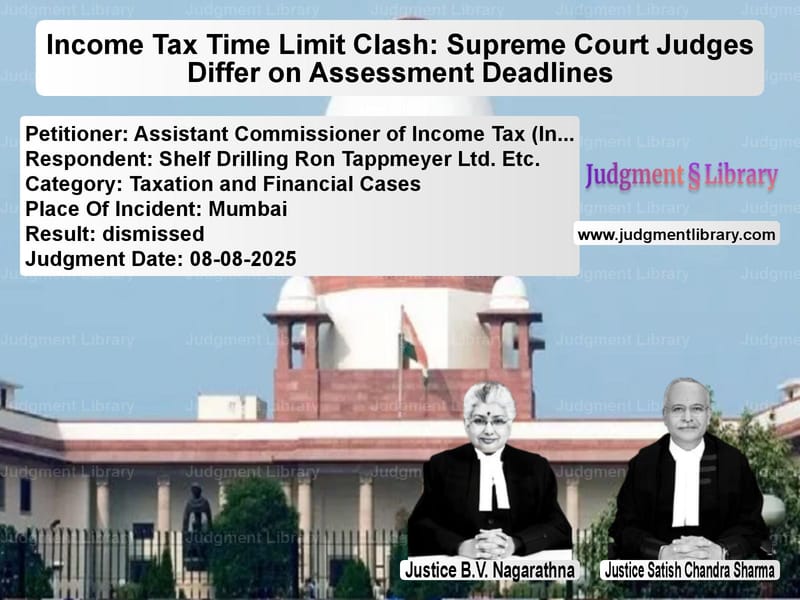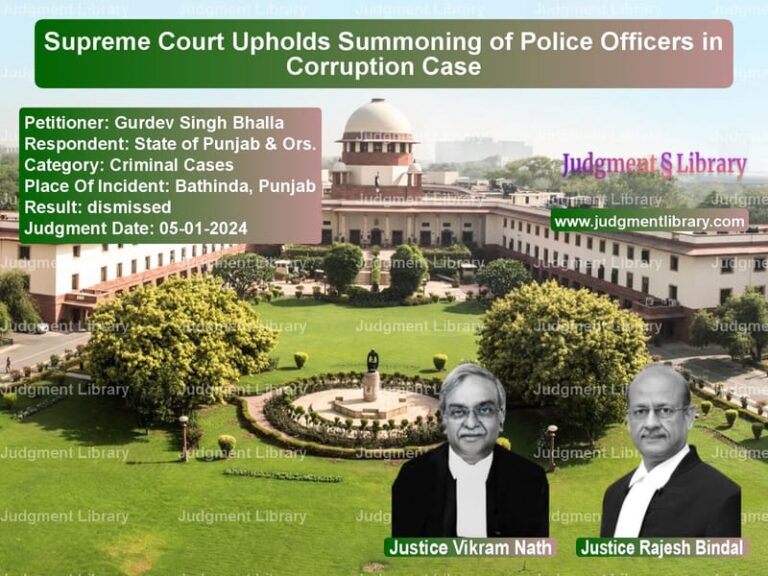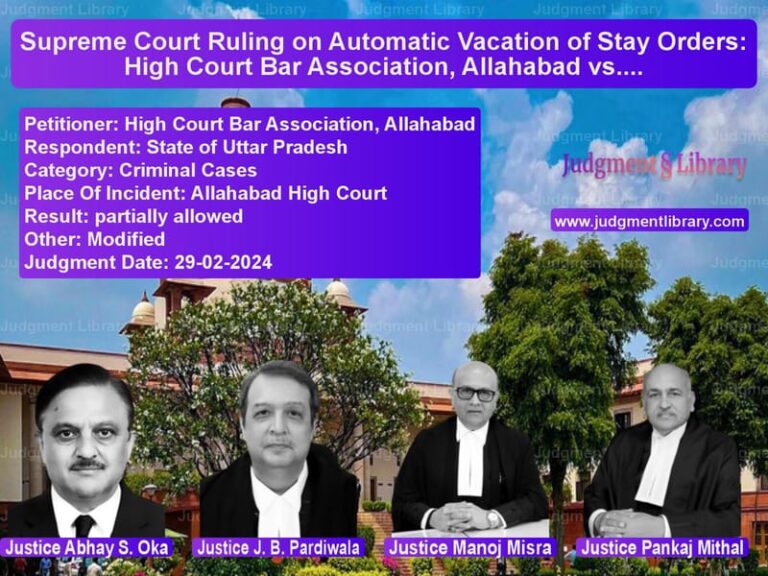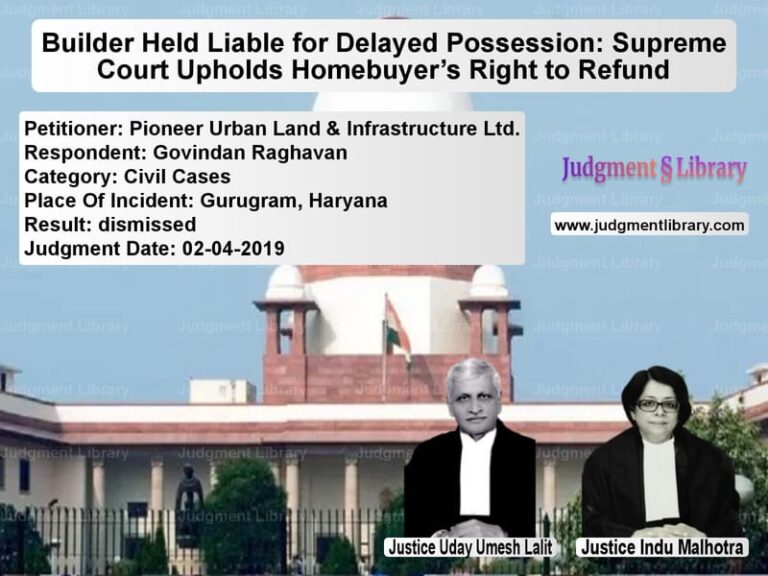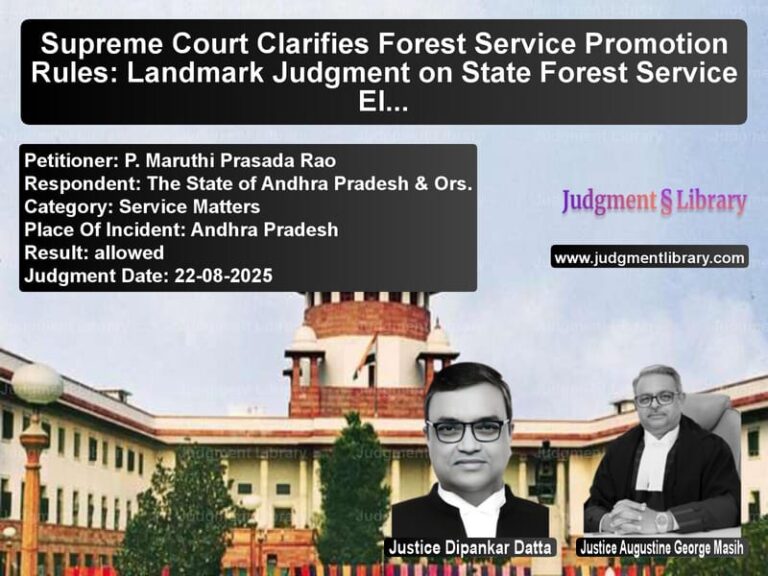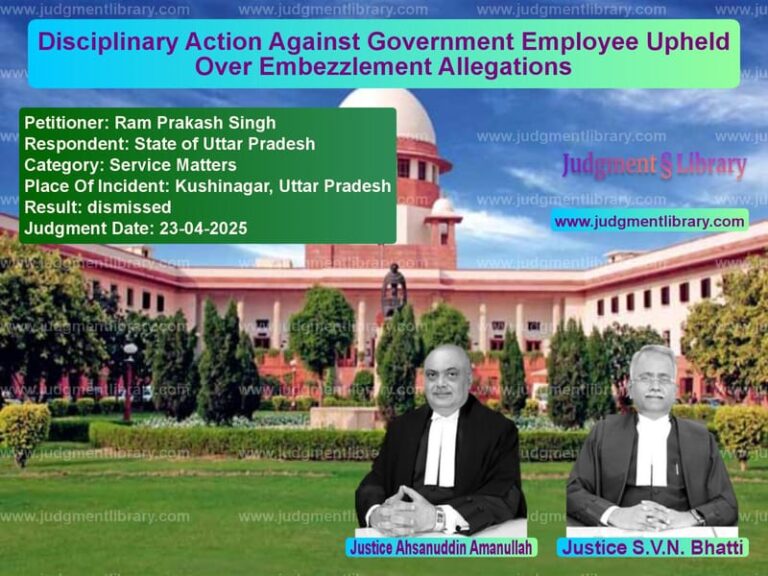Income Tax Time Limit Clash: Supreme Court Judges Differ on Assessment Deadlines
In a significant legal development that has captured the attention of tax professionals and foreign companies operating in India, two Supreme Court judges have expressed completely opposing views on a crucial question of income tax law. The case involves the interpretation of time limits for completing tax assessments, specifically when it comes to foreign companies and non-resident taxpayers.
The heart of the matter lies in the conflicting interpretations of Section 144C and Section 153 of the Income Tax Act, 1961. These provisions deal with the timeframes within which tax authorities must complete assessments, particularly for a special category of taxpayers known as “eligible assessees” – which primarily includes foreign companies and non-residents.
The Background of the Case
The dispute originated from assessments concerning Shelf Drilling Ron Tappmeyer Ltd., a foreign company engaged in shallow water drilling services for the oil and gas industry. The company had filed returns showing substantial losses, but the tax authorities proposed significant variations to their declared income.
What makes this case particularly important is that it involves the procedure under Section 144C, which creates a special dispute resolution mechanism for eligible assessees. Unlike regular taxpayers who receive final assessment orders directly, eligible assessees first receive a draft assessment order. They then have the option to either accept the variations proposed by the tax officer or file objections before a Dispute Resolution Panel (DRP).
The critical question before the court was whether the entire procedure under Section 144C – including the time taken by the DRP to decide objections – must be completed within the overall time limit prescribed under Section 153, or whether the Section 144C procedure gets additional time beyond what Section 153 allows.
The Conflicting Arguments
The Revenue Department, represented by Additional Solicitor General N. Venkataraman, argued vigorously that Section 144C is a complete code in itself with its own timelines. He contended that “Section 144C has its own timeline which is in addition to what is prescribed under Section 153 of the Act as it is in the nature of an exception to the latter provision.”
The Revenue’s position was that the time limits under Section 153 apply only to the stage of passing the draft assessment order under Section 144C(1). Once this draft order is passed, the subsequent procedures before the DRP and the passing of the final assessment order operate under their own timelines, which are in addition to the Section 153 timelines.
On the other side, the respondents, represented by senior counsel J.D. Mistry, argued that the procedure under Section 144C must be completed within the overall timeframe of Section 153. He emphasized that “in all cases, pertaining to an eligible assessee, the procedure contemplated under Section 144C has to be within the time frame prescribed under Section 153(3) of the Act. There is no additional limitation period contemplated over and above what is prescribed in Section 153(3).”
The respondents pointed out that when Parliament intended to exclude certain periods from the calculation of limitation, it specifically provided for such exclusions in the Explanation to Section 153. The absence of any reference to Section 144C proceedings in these exclusion clauses indicated that no additional time was intended for the DRP procedure.
The Divergent Judicial Opinions
Justice Nagarathna, in her detailed opinion, sided with the taxpayers’ interpretation. She emphasized the need for harmonious construction of the statutes and gave significant weight to the legislative intent behind introducing Section 144C. “The object and purpose of prescribing narrower limitation periods (one month) in sub-section (4) of Section 144C and one month in sub-section (13) of Section 144C is to ensure that the proviso to sub-section (3) of Section 153 is ultimately complied with as it prescribes the overall limitation period of twelve months.”
Justice Nagarathna analyzed the three non-obstante clauses in Section 144C differently. She concluded that the non-obstante clause in sub-section (1) was meant to create a distinct procedure for eligible assessees, not to override the limitation periods in Section 153. Only the non-obstante clauses in sub-sections (4) and (13) specifically referred to Section 153, and these were meant to prescribe shorter timelines for specific stages, not to extend the overall limitation period.
In her view, “the procedure under Section 144C has to be concluded within the time frame envisaged under Section 153(3) or Section 153(1) as the case may be.” She found that the High Court was correct in holding that the assessments had become time-barred.
Justice Satish Chandra Sharma, however, reached the completely opposite conclusion. He expressed strong concerns about the practical consequences of requiring the entire Section 144C procedure to be completed within Section 153’s timelines. “If I take the view that the entire procedure prescribed and contemplated in terms of Section 144C of the Income Tax Act must be subsumed within the overall time period prescribed under Section 153 of the Income Tax Act, I am of the opinion that it would result in a complete catastrophe for recovering lost tax.”
Justice Sharma emphasized the unworkability of such an interpretation, noting that “the time period within which the Assessing Officers would have to pass orders would be negligible.” He gave significant weight to the fact that the DRP procedure is initiated at the option of the assessee, and therefore the time taken in this process should not count against the revenue.
In his view, “the timelines prescribed under Section 153 will be applicable upto the stage of passing the draft assessment order under Section 144C(1). Once the procedure under Section 144C(1) gets triggered, the time available with the Dispute Resolution Panel to carry out the process conceived under Section 144C(5) to Section 144C(12) and the time available with the assessing officer under Section 144C(13), will be over and above the timelines prescribed under Section 153.”
The Legal Principles at Stake
Both judges extensively discussed the principles of statutory interpretation, particularly in the context of taxing statutes. Justice Nagarathna emphasized that “A taxing statute must be read as it is with no additions and no subtractions on the grounds of legislative intendment or otherwise” and that “while dealing with a taxing provision, the principle of strict interpretation should be applied.”
Justice Sharma, while acknowledging these principles, gave greater emphasis to the need to avoid absurd interpretations. He quoted from established precedents that “A statute is designed to be workable, and the interpretation thereof by a court should be to secure that object, unless crucial omission or clear direction makes that end unattainable.”
The judges also differed in their interpretation of the non-obstante clauses in Section 144C. Justice Nagarathna applied the principle that “a non obstante clause is a legislative device used by a Parliament or legislature sometimes to give an overriding effect to what has been specified in the enacting part of a section in case of a conflict with what is contained in the non obstante clause.” She found no such conflict between Section 144C and Section 153 that would require the former to override the latter’s limitation periods.
The Way Forward
With two judges of the Supreme Court expressing diametrically opposite views on this crucial question of tax law, the matter has been referred to the Chief Justice of India for constitution of an appropriate larger bench. This means that the final word on this issue is yet to come, and the uncertainty continues for both taxpayers and the tax department.
The outcome of this case will have significant implications for foreign companies and non-residents operating in India, as it will determine the timeframe within which their tax assessments must be finalized. It will also impact the revenue authorities’ ability to complete assessments in cases involving complex international tax issues.
What makes this case particularly fascinating is that it represents a classic conflict in statutory interpretation – between strict textual interpretation and pragmatic considerations of workability. Justice Nagarathna’s approach leans more toward textual analysis and strict construction of taxing statutes, while Justice Sharma’s approach gives greater weight to practical consequences and legislative purpose.
As the legal community awaits the decision of the larger bench, this case serves as a reminder of the complexities involved in interpreting overlapping provisions in tax laws, and the delicate balance that courts must strike between protecting taxpayers’ rights and enabling efficient tax administration.
Petitioner Name: Assistant Commissioner of Income Tax (International Taxation) & Others.Respondent Name: Shelf Drilling Ron Tappmeyer Ltd. Etc..Judgment By: Justice B.V. Nagarathna, Justice Satish Chandra Sharma.Place Of Incident: Mumbai.Judgment Date: 08-08-2025.Result: dismissed.
Don’t miss out on the full details! Download the complete judgment in PDF format below and gain valuable insights instantly!
Download Judgment: assistant-commission-vs-shelf-drilling-ron-t-supreme-court-of-india-judgment-dated-08-08-2025.pdf
Directly Download Judgment: Directly download this Judgment
See all petitions in Income Tax Disputes
See all petitions in Tax Evasion Cases
See all petitions in Tax Refund Disputes
See all petitions in Corporate Compliance
See all petitions in Commercial Insurance Disputes
See all petitions in Judgment by B.V. Nagarathna
See all petitions in Judgment by Satish Chandra Sharma
See all petitions in dismissed
See all petitions in supreme court of India judgments August 2025
See all petitions in 2025 judgments
See all posts in Taxation and Financial Cases Category
See all allowed petitions in Taxation and Financial Cases Category
See all Dismissed petitions in Taxation and Financial Cases Category
See all partially allowed petitions in Taxation and Financial Cases Category

